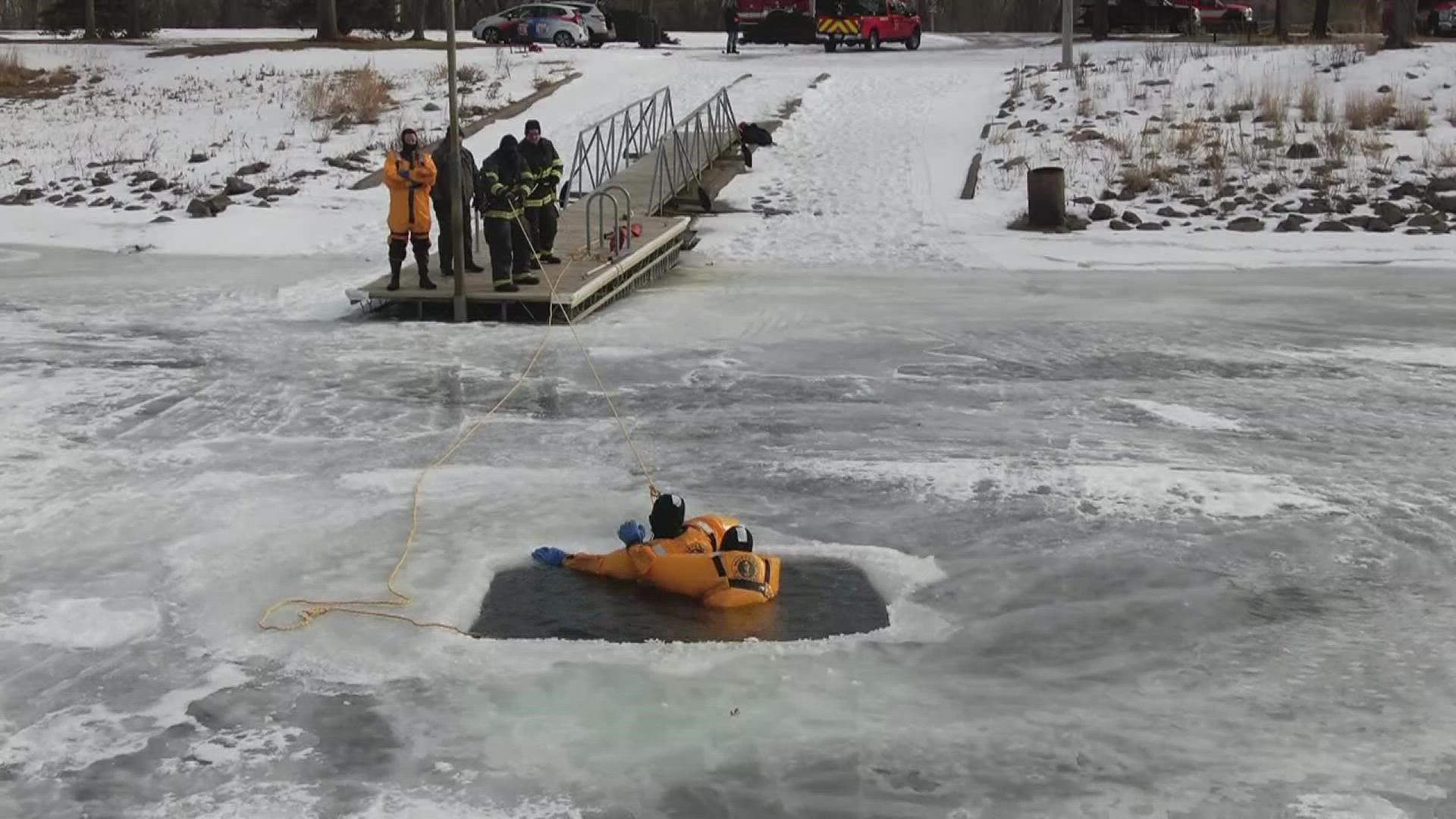ROCK ISLAND, Ill. — Rock Island firefighters brushed up on their ice rescue skills at Sunset Marina on Wednesday.
Fifteen firefighters took turns getting into the water through a hole they carved into the ice.
It's a simple set of rules for a complicated rescue.
The man in the water simply tapping his head to signal they're "okay" before signaling again by waving to the men on shore. From there, the firefighter in the water and victim are pulled into shore by a rope attached to the victim.
Battalion Chief Darren Lebeau says it's all about being prepared.
"The training continues on, even in cold conditions like this," Lebeau said. "The members still are having to go out there and perform like we would for real like if something would happen today for an ice rescue of a fisherman or something like that."
In 15 to 20-minute increments, crews of three took turns practicing the rescue before jumping back into waiting trucks and ambulances to warm up.
"We're going to have members not only going out to rescue, but we're going to have members on the shoreline who are going to be acting as tenders who are going to be basically his safety," Lebeau said.
It's a different kind of extreme temperature these fire fighters are facing. Despite the cold temperatures, it isn't the sub-zero temps that are off putting to firefighter Brian Taylor.
"It's an odd feeling. You want to float in weird directions but if you get your feet behind you it feels pretty comfortable," Taylor said.
While time is always crucial for fire fighters at work, these drills are all about completing them as safely as possible.
"We're just trying to hit certain key points of identifying our victim, locating our victim, getting to our victim, and then tethering him, and bringing him to safety," Lebeau said.
It's Taylor's first time participating in the drill. While he doesn't anticipate using the skill often, it's worth brushing up on the practice for him.
"These are just high risk and low frequency skills that we don't do often," Taylor said. "So just to be able to train on this every year to stay up to date with our skills is important."
The training allows the men to understand both the equipment, and how the equipment operates in brutally cold conditions.

